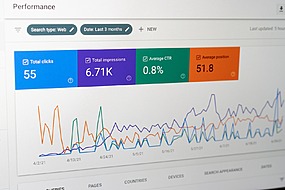Table of Contents
In today’s fast-paced digital world, website speed is no longer a luxury but a necessity. A slow-loading website can significantly impact user experience, conversion rates, and search engine rankings.
Why is Website Speed Important?
- User Experience: A slow-loading website can frustrate users, leading to higher bounce rates and reduced engagement.
- Conversion Rates: Studies have shown that a 1-second delay in page load time can decrease conversion rates by up to 7%.
- Search Engine Rankings: Google and other search engines prioritize websites with faster loading times, as they provide a better user experience.
Optimizing Website Speed: A Step-by-Step Guide
1. Minify HTML, CSS, and JavaScript: Minification removes unnecessary whitespace, comments, and redundant code,reducing the file size and improving loading speed.
2. Leverage Content Delivery Networks (CDNs): A CDN distributes your website’s content across multiple servers worldwide, providing faster delivery to users from different locations.
3. Optimize Images: Images can significantly impact loading times. Use compressed image formats like JPEG or PNG,and optimize image dimensions to fit the page layout.
4. Implement Browser Caching: Caching saves frequently accessed resources on the user’s device, reducing the need to download them repeatedly.
5. Enable HTTP/2: HTTP/2 is the latest version of the HTTP protocol, offering significant performance improvements over HTTP/1.1.
6. Eliminate Render-Blocking Resources: Render-blocking resources prevent the browser from rendering the page until they have finished downloading. Identify and optimize these resources.
7. Optimize Database Queries: Slow database queries can significantly impact website speed. Optimize queries to minimize execution time and improve overall performance.
8. Implement a Content Delivery Network (CDN): A CDN distributes your website’s content across multiple servers worldwide, providing faster delivery to users from different locations.
9. Use Lazy Loading: Lazy loading defers the loading of images and other non-critical resources until they are in the viewport, reducing the initial load time.
10. Optimize Client-Side Scripting: Minimize the use of JavaScript and optimize the code to reduce its impact on loading times.
11. Monitor and Analyze Website Performance: Regularly monitor your website’s performance using tools like Google PageSpeed Insights or GTmetrix. Identify areas for improvement and prioritize optimization efforts.
12. Test Across Different Devices and Browsers: Ensure your website performs well across different devices and browsers to provide a consistent user experience.
13. Use Accelerated Mobile Pages (AMP) AMP is a Google initiative that creates optimized web pages for mobile devices, providing faster loading times.
14. Optimize for Third-Party Plugins and Scripts: Ensure third-party plugins and scripts are optimized and loaded efficiently to minimize their impact on website speed.
15. Regularly Update Plugins and Themes: Outdated plugins and themes can introduce performance issues. Keep them updated to ensure optimal performance.
Conclusion
By following these optimization techniques, you can significantly improve your website’s speed, enhancing user experience, boosting conversion rates, and improving search engine rankings. Remember, website speed is an ongoing journey, and continuous optimization is essential to maintain peak performance.
FAQs:
1. How can I measure my website’s speed?
Use tools like Google PageSpeed Insights or GTmetrix to analyze your website’s performance and identify areas for improvement.
2. What are the common website speed bottlenecks?
Common bottlenecks include large images, slow-loading scripts, and inefficient code.
3. How much should I invest in website speed optimization?
The cost of optimization depends on the complexity of your website and the extent of improvements needed.
4. What are the benefits of fast loading websites?
Fast loading websites improve user experience, boost conversion rates, and improve search engine rankings.





No Comments